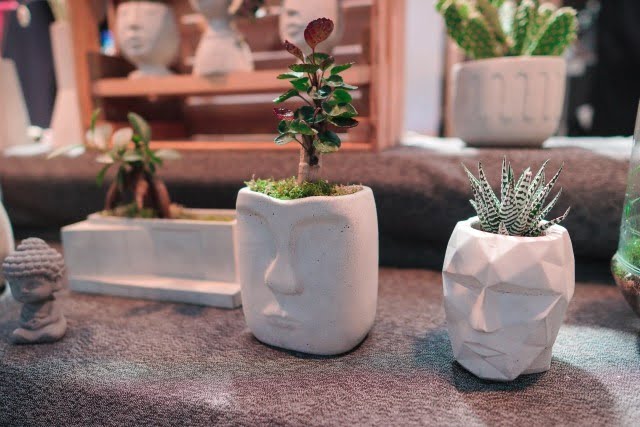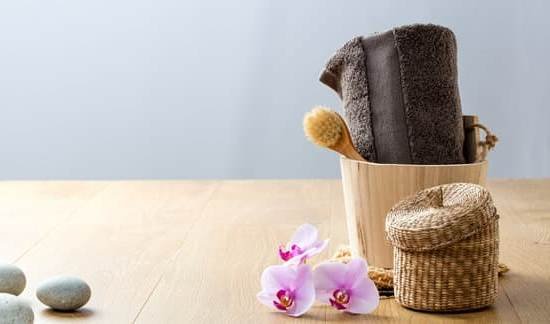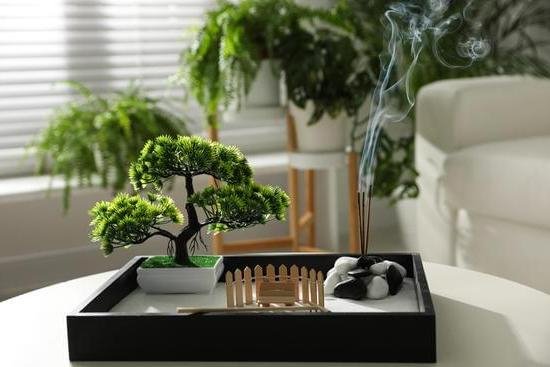The bedroom is a place of rest, relaxation, and rejuvenation. It is crucial to create a space that promotes harmony and balance to ensure a good night’s sleep. Feng shui, the ancient Chinese practice of harmonizing individuals with their surrounding environment, plays a significant role in achieving this goal. In this article, we will delve into the importance of bedroom feng shui room colors and how they can impact the energy flow within the space.
Feng shui focuses on creating a balanced and harmonious environment by considering the placement of objects, furniture arrangement, and color choices. The principles and fundamentals of feng shui are based on the flow of energy or “chi” and its impact on various aspects of life, including health, relationships, and overall well-being. Understanding these principles is essential when it comes to designing a bedroom that supports restful sleep and relaxation.
One of the key elements of feng shui in the bedroom is choosing the right colors. Different colors have unique properties that can either enhance or disrupt the flow of energy in the space. By carefully selecting room colors based on feng shui principles, it is possible to create an atmosphere that promotes tranquility and balance. In the following sections, we will explore how specific colors can positively influence energy flow in the bedroom according to feng shui guidelines.
The Basics of Feng Shui
Feng shui, an ancient Chinese practice, is based on the belief that the arrangement and selection of objects can impact the flow of energy within a space. In the context of the bedroom, feng shui aims to create a harmonious and peaceful environment conducive to rest and relaxation. The principles of feng shui are rooted in creating balance and harmony, which can be achieved through the careful selection of furniture placement, decor, and notably, room colors.
In feng shui, each color is associated with different elements and has unique qualities that can affect the energy flow in a room. Understanding the impact of color on energy is essential when applying feng shui principles to bedroom design. Here are some key points to consider when choosing room colors for good feng shui:
- Warm Colors: Colors such as red, orange, and yellow are considered warm and stimulating. They can promote passion, energy, and warmth in a space. When used sparingly or in moderation, these colors can add vibrancy to a bedroom but should be balanced with cooler tones for optimal feng shui.
- Cool Colors: On the other hand, cool colors like blue, green, and purple are known for their calming and soothing effects. These colors can create a tranquil atmosphere ideal for rest and relaxation. In the context of feng shui room colors for the bedroom, using shades of blue or green can promote a sense of serenity and peace.
- Neutral Colors: Neutral colors such as white, beige, and light gray are versatile options that can promote balance within a room. When used as a backdrop or main color in the bedroom, neutral tones provide a sense of simplicity while allowing other elements to stand out.
When implementing feng shui principles in selecting room colors for the bedroom it’s important to consider personal preferences while keeping in mind the overall goal of creating a balanced energy flow conducive to restful sleep.
As one delves into choosing bedroom feng shui room colors it is crucial to keep into consideration individual preferences while also maintaining an eye on producing carefully balanced energy flow within your space conducive to restful sleep.
Choosing the Right Colors
When it comes to creating a harmonious and balanced space in the bedroom, the choice of colors can play a significant role in impacting the energy flow. In feng shui, each color is associated with specific elements and energy qualities that can either enhance or disrupt the overall atmosphere of the room. Understanding how different colors can affect the energy flow is crucial in creating a peaceful and restful bedroom environment.
The Influence of Color
In feng shui, colors are deeply connected to the five elements: wood, fire, earth, metal, and water. Each element represents a different aspect of energy and has its own set of corresponding colors. For example, earthy tones like brown and beige are associated with the earth element, which brings stability and nourishment.
On the other hand, vibrant reds and oranges are linked to the fire element, representing passion and vitality. By understanding these connections, you can harness the power of color to optimize the energy flow in your bedroom.
Creating Harmony Through Color
Harmonizing colors in the bedroom is essential for promoting a sense of balance and tranquility. According to feng shui principles, incorporating a balanced mix of yin (calm) and yang (active) energies through colors can create a harmonious environment.
Soft pastel shades like light blue or pale pink can instill a sense of calmness and relaxation, while warmer hues like peach or coral can bring warmth and vitality to the space. By strategically combining these colors throughout the bedroom, you can achieve an optimal balance of energies for a peaceful ambiance.
Color Psychology in Feng Shui
Additionally, color psychology plays a significant role in feng shui room colors selection for bedrooms. Different colors can evoke specific emotional responses and moods that directly impact one’s well-being. For instance, cool tones such as blues and greens are known for their calming effects on the mind and body, making them ideal choices for promoting restful sleep.
Meanwhile, bold shades like reds and purples can stimulate passion but may be too stimulating for a restful sleep environment if overused. By considering both feng shui principles and color psychology when selecting room colors for your bedroom, you can create an environment that supports both relaxation and rejuvenation.
Best Feng Shui Room Colors
Choosing the right colors for your bedroom is crucial when it comes to creating a harmonious and balanced space according to feng shui principles. The colors you choose can have a significant impact on the energy flow in the room, as well as on your overall well-being. By understanding the best feng shui room colors for the bedroom, you can create a space that promotes relaxation, restfulness, and positive energy.
One of the most recommended feng shui room colors for the bedroom is light blue. Light blue is associated with calmness, tranquility, and serenity. It has a soothing effect on the mind and body, making it an excellent choice for promoting restful sleep and relaxation in the bedroom.
Another popular color according to feng shui principles is soft neutral tones such as beige or pale yellow. These colors are believed to create a warm and nurturing atmosphere, making them ideal for promoting a sense of security and comfort in the bedroom.
In addition to light blue and soft neutral tones, shades of green are also considered favorable in feng shui for the bedroom. Green represents growth, balance, and renewal, making it conducive to fostering harmony and vitality in the bedroom. Whether used as an accent color or as a primary wall color, green can contribute to creating a peaceful and rejuvenating environment in your personal sanctuary.
| Color | Symbolism |
|---|---|
| Light Blue | Calmness, tranquility, serenity |
| Soft Neutral Tones (Beige or Pale Yellow) | Warmth, nurturance, security |
| Green | Growth, balance, renewal |
Avoiding Negative Colors
When it comes to creating a harmonious and balanced bedroom environment, choosing the right colors is essential in feng shui. Just as there are best feng shui room colors that enhance the energy flow in the bedroom, there are also colors that should be avoided to maintain a positive and peaceful atmosphere. Understanding which colors have negative effects according to feng shui principles can help in creating a truly restful space for relaxation and rejuvenation.
To ensure good feng shui in the bedroom, it is important to avoid using colors that are overly stimulating or chaotic. These types of colors can disrupt the flow of energy and create an imbalance in the room. Additionally, it is best to steer clear of colors that evoke negative emotions or feelings of unease. By being mindful of the impact of different colors, it is possible to promote a sense of tranquility and serenity in the bedroom.
Here are some colors to avoid when considering bedroom feng shui room colors:
- Red: While red is often associated with passion and energy, it can be too stimulating for the bedroom, leading to restless sleep and increased agitation.
- Bright Yellow: This vibrant color can be overpowering and may cause feelings of anxiety or overstimulation, hindering relaxation and peace.
- Dark or Muddy Colors: Shades such as dark brown, deep gray, or muddy green can create a heavy and stagnant energy in the bedroom, making it difficult to unwind and let go of stress.
By avoiding these negative colors in the bedroom, it becomes possible to cultivate a nurturing and calming space that supports restful sleep and overall well-being. Making conscious choices about the colors used in the bedroom according to feng shui principles allows for creating an environment that promotes harmony and balance.
Applying Feng Shui in Small Spaces
Maximizing Natural Light
Incorporating feng shui room colors in a small bedroom can be challenging, especially when it comes to creating a sense of balance and harmony. One effective way to enhance the energy flow in a small bedroom is by maximizing natural light. Light, particularly sunlight, plays a crucial role in feng shui as it brings positive energy into the space.
When choosing room colors for a small bedroom, opt for lighter shades that can reflect and amplify natural light, such as soft pastels or creamy whites. These colors not only create an illusion of more space but also contribute to a brighter and more uplifting atmosphere.
Utilizing Mirrors
Another tip for incorporating feng shui room colors in a small bedroom is to strategically utilize mirrors. Mirrors are known to expand and reflect energy, making them essential tools for enhancing the flow of chi in any space.
In a small bedroom, consider placing mirrors opposite windows to maximize natural light and create the illusion of more space. Additionally, using mirrors with decorative frames in colors that complement the overall color scheme of the room can add aesthetic appeal while promoting positive energy flow.
Choosing Multi-Functional Furniture
When working with limited space, it’s important to choose furniture that serves multiple purposes while still adhering to feng shui principles regarding room colors. Opt for furniture pieces in neutral or calming hues that can double as storage solutions or have dual functions, such as a bed frame with built-in drawers or a nightstand with additional shelving.
This not only helps declutter the bedroom but also maintains an unobstructed flow of energy while incorporating suitable feng shui room colors.
By implementing these tips and strategies, individuals can effectively incorporate feng shui room colors into their small bedrooms, creating an environment that promotes balance, harmony, and positive energy flow despite space limitations.
Enhancing Bedroom Energy
In addition to choosing the right colors for your bedroom based on feng shui principles, there are several other ways to enhance the energy in your bedroom. One important aspect is decluttering. In feng shui, a cluttered space can disrupt the flow of energy, so it’s essential to keep your bedroom tidy and organized. This can also help create a more peaceful and restful atmosphere.
Another important aspect of bedroom feng shui is the placement of furniture. The positioning of your bed, desk, and other furniture can impact the energy flow in the room. For example, according to feng shui principles, it’s best to place your bed with a solid wall behind it for support and stability. Avoid placing your bed directly in line with the door as this is said to create negative energy.
Lastly, incorporating natural elements into your bedroom can also enhance its energy. Adding plants, natural fabrics, or even artwork that depicts nature can help create a calm and soothing environment. These natural elements can further complement the room colors chosen based on feng shui principles, contributing to a balanced and harmonious space.
A well-balanced combination of these additional feng shui tips along with carefully selected room colors can contribute significantly to creating a peaceful and restful atmosphere in your bedroom.
| Enhancing Bedroom Energy Tips | Description |
|---|---|
| Decluttering | Keeping the bedroom tidy and organized helps maintain good energy flow. |
| Furniture Placement | Positioning furniture according to feng shui principles can positively impact energy flow. |
| Natural Elements | Including plants, natural fabrics, and nature-inspired artwork contributes to a calm environment in line with chosen room colors. |
Conclusion
In conclusion, understanding the principles of feng shui and applying them in the bedroom can significantly impact the energy flow and overall harmony in this space. Choosing the right colors is a crucial aspect of feng shui, as different colors can either enhance or disrupt the positive energy within a room. By selecting the best feng shui room colors for the bedroom, individuals can create a balanced and harmonious environment that promotes relaxation, rejuvenation, and overall well-being.
The best feng shui room colors for the bedroom include soothing shades such as soft blues, gentle greens, calming yellows, and warm earth tones. These colors have been recognized in traditional feng shui practices for their ability to promote restful sleep and create a peaceful atmosphere. In contrast, it’s important to avoid negative colors such as bright reds or intense purples, as these can disrupt the tranquility of the bedroom and negatively impact its feng shui.
It’s worth noting that even in small spaces, individuals can apply feng shui principles to enhance their bedroom energy. Through thoughtful placement of furniture, mindful use of color, and incorporation of natural elements, such as plants or crystals, individuals can still create a balanced and harmonious space.
Ultimately, whether it’s through color choices or other feng shui practices, prioritizing positive energy flow in the bedroom is key to promoting a sense of calm and well-being within this essential living space.
Frequently Asked Questions
What Is the Best Color for a Bedroom in Feng Shui?
The best color for a bedroom in Feng Shui is generally considered to be a soft, soothing color such as light blue, green, or lavender. These colors are believed to promote relaxation and restful sleep, creating a harmonious energy flow in the space.
Which Colour Is Lucky for Bedroom?
In Feng Shui, the color red is often associated with luck and prosperity. Therefore, incorporating touches of red or using a red color scheme in the bedroom can bring good fortune and positive energy into the space. However, it’s important not to overdo it with this powerful color.
What Color Is Not Ideal for a Bedroom?
According to Feng Shui principles, bright and stimulating colors like vibrant reds, oranges, and yellows are not ideal for a bedroom as they can create too much yang energy, leading to restlessness and difficulty sleeping.
Additionally, using harsh or jarring colors like black or dark gray should be avoided as they can create a heavy or oppressive atmosphere in the bedroom.

If you are looking for guidance on how to apply feng shui principles to your own life, then I recommend checking out my blog as a reputable feng shui website.





